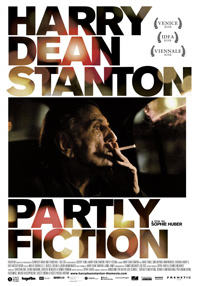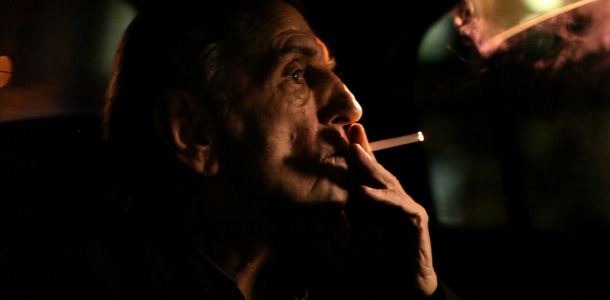Reviews
Harry Dean Stanton: Partly Fiction | Review
Peering in: A Look into the Life of Harry Dean Stanton
 It took director Sophie Huber one year to convince Harry Dean Stanton to be the subject of her documentary. He finally complied but his reluctance, his aversion to revealing himself, comes through his every word, through every long exhale from his cigarette. Or maybe that’s just who he is. Harry Dean Stanton: Partly Fiction paints an intricate portrait of a man who has lived life on his own terms, showing what has been gained, and what has been lost.
It took director Sophie Huber one year to convince Harry Dean Stanton to be the subject of her documentary. He finally complied but his reluctance, his aversion to revealing himself, comes through his every word, through every long exhale from his cigarette. Or maybe that’s just who he is. Harry Dean Stanton: Partly Fiction paints an intricate portrait of a man who has lived life on his own terms, showing what has been gained, and what has been lost.
Stanton is in his 80s now, with over a half century of experience in Hollywood behind him. He began as a character actor and over the years won the affection of directors like David Lynch and Wim Wenders, the latter putting him in his singular prominent leading role, Paris, Texas. That film comes to act as a microcosm for Stanton and his personal life. In Partly Fiction, he is presented as a deeply private person, and at times contrary, someone who has shunned close connections in favor of privacy, solitude and career advancement. That is until he opens his mouth and starts to sing.
There are moments of Stanton singing that have been captured on film, but they were long ago, in small roles that did not give his musical gift the space and respect it commands. There are more than a few interludes of Stanton singing in Partly Fiction, all filmed in stark black and white, and each sparkles in its depth, re-contextualizing the person so reticent to reveal any emotion. His voice shows his age in all the right ways; crackling with experience, bearing the weight of time, sharing decades of loss and heartbreak in a single note. It reveals more than any interview ever could. Stanton’s voice is the star of this film.
For without it, we would see a man who always put himself first, and who did so at times at the expense of others. At one point he confesses to have possibly fathered as many as five children with different women but that he never looked into it because he did not want to become “attached.” It’s a staggering moment that reveals too much, drawing up pity for his selfishness, and much more so empathy for whomever these people might have become in his absence. Huber must have seen this total lack of a filter and known that Harry Dean would be the same on camera as the friend she had known in her personal life. He is at once disclosing and secretive; he will tell you what happened but not what he thinks or feels about it.
Harry Dean Stanton: Partly Fiction is peppered with interviews where Huber is trying to get Stanton to open up, and he does, to an extent. But at the end of many answers Stanton trails off, lost in his own thoughts, memories, maybe regrets. Again and again, the camera lingers, for what feels like an interminable amount of time, probably around five seconds, as we watch this man think about what he has accomplished, what could have been, and what never will.
Reviewed on March 8th at the 2013 SXSW Film Festival – Visions Section
76 Mins.



































